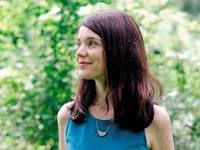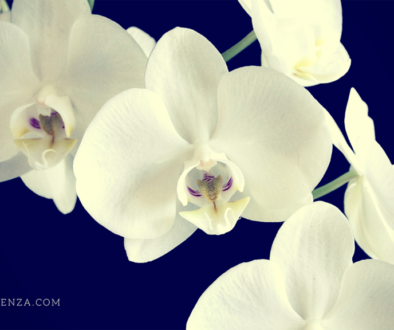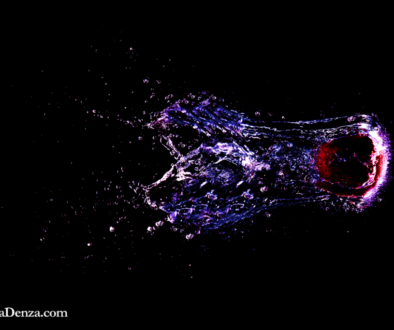
Belle Boggs is the author of The Gulf: A Novel; The Art of Waiting; and Mattaponi Queen: Stories. The Art of Waiting was a finalist for the PEN/Diamonstein-Spielvogel Award for the Art of the Essay and was named a best book of the year by Kirkus, Publishers Weekly, the Globe and Mail, Buzzfeed, and O, the Oprah Magazine. Mattaponi Queen, a collection of linked stories set along Virginia’s Mattaponi River, won the Bakeless Prize and the Library of Virginia Literary Award and was a finalist for the 2010 Frank O’Connor International Short Story Award. She has received fellowships from the National Endowment for the Arts, the North Carolina Arts Council, and the Bread Loaf and Sewanee writers’ conferences. Her stories and essays have appeared in the Atlantic Monthly, Orion, the Paris Review, Harper’s, Ecotone, Ploughshares, and elsewhere. She is an associate professor of English at North Carolina State University, where she also directs the MFA program in creative writing.
Q: You’ve written three very different books: an award-winning story collection, a memoir, and your debut novel, The Gulf. Did the writing of each require something very different from you? Was the novel the most fun to write?
Belle: I think that in each book I was able to draw on my love for short story writing–The Art of Waiting is in some ways a memoir, but many of the essays follow people other than myself, and putting it together structurally was a little like constructing a collection of stories. The Gulf is told from four different points of view, which gave me the kind of divergent character- and voice-constructing opportunity I enjoy when I’m writing short stories. And there are other connections–setting and humor are important to me in the books I love to read, so they play important roles in all three books. Writing The Gulf was fun because it’s meant to be a comic novel, with an absurdist quality about it–but it was also the hardest to revise, since I drafted it before The Art of Waiting (and before the 2016 election). I told myself it would be a long time before I wrote another novel, but it looks like that’s what I’m doing.
Q: Your book’s premise involves a for-profit scheme for a religious writing conference set on the Gulf Coast. How did the seed of this idea arise?
Belle: Like a lot of people, I’m fascinated by scams, and I’ve also been interested in the religious right for most of my life, since I grew up around that culture, but was an outsider to it. I started the book in 2011, when the Tea Party was putting up these awful, fear-mongering signs near my parents’ house in Virginia, and also when I was thinking and reading a lot about for-profit schools. The plot felt like a good way to write something ridiculous that also seemed scarily plausible.
Q: You do an admirable job being open and kind to each of your characters. This isn’t a satire on religion or faith, but rather, a satire on capitalism run amok. What do you hope readers take away from your book after they’ve read it?
Belle: That was my goal–for people to think about capitalism, what happens when art is commodified, and also about political manipulation. God’s Word God’s World, the investor that takes over the Ranch, is not a true “faith-based” organization, as they bill themselves, but a diploma mill operator that wants to defund community colleges. But how are the Genesis Inspirational Writing Ranch students supposed to know that? It’s easy to see how their students could be flattered by the attention to their work, even as they’re being taken for fools. I was also interested in how friendships (like Janine’s and Marianne’s) develop across divides and whether a relationship formed in that way can survive betrayal.
Q: It’s so hard to write humor well, and you do a marvelous job. Any how-to tips?
Belle: Thank you! I think humor is catching, so I’m always looking for writing that’s funny. This summer I’ve been reading a lot of Miriam Toews. I read reviews of Women Talking that described the plot, which is quite dark, but also praised her light touch and humor, so I knew I wanted to read it (and I loved it). Humor is also really personal–it’s formed by the people we’re close to and their senses of humor, and also our flaws, our anxieties and strangeness, so I tell my students not to be afraid to let that show in their work.
Q: If you were to start a writing conference what would its theme be, if any?
Belle: I think my conference would be like one of those coffee shops that has a bunch of nice cats who will take turns sitting on your lap while you work. Unlike the Ranch, we would definitely have good coffee (my favorite is the Counter Culture French Roast you can get as the store brand coffee at Lowes Foods).
Q: You’re a creative writing professor at NC State. How does teaching inform your own work?
Belle: I’m really interested in the power dynamics that happen in the classroom, and also in teachers (especially public school teachers) as characters, since I spent years in that kind of classroom. Teaching is a great career for writers who can do it–it’s hard work, but if you’re lucky, you get the summers off for writing, and you meet so many interesting people.
Q: What’s next?
Belle: I’m working on a short novel about the choice to have children in a dangerous and maybe doomed world. It combines a lot of my writing and research interests–assisted reproduction, hippie culture, climate fiction, teaching–and is set in North Carolina, basically at my house in Chatham County, over six days.
Q: What would you say about the importance of desire in storytelling?
Belle: Our characters have to want something–we learn that early on, as readers or students of fiction writing. The character wants something, and something else gets in her way–and something else, and something else. Of course this is true, but I’m also interested in the desire of the writer, to inhabit or invent or remember some place or character or set of circumstances. If you don’t want to be there, in that world, the writing is very hard–and the reading isn’t surprising or compelling. Right now I’m rereading Natalia Ginzburg’s Family Lexicon, a stunning book (she said it should be read as a novel, though all of the book is true) which the New York Review of Books published in a new translation a couple of years ago. Even as much is happening in the background (the rise of fascism in WWII-era Italy), the book’s subject is the domestic sphere, and you can feel Ginzburg’s delight in delving up every surprising, intimate detail about her parents, her siblings, the little village where the family vacationed when she was a child, the things they said (over and over) to one another. Ginzburg and her family were anti-fascists, and she often wrote of the time before–before the neighbors disappeared, before her own family was exiled, members of her family imprisoned, her own husband killed in prison. In her essay, “Winter in the Abruzzi,” she writes of looking back on that time in exile, when at least they were together: “that was the best time of my life, and only now that it has gone from me forever—only now do I realize it.” I think of this line often–its beauty, its urgency. That kind of desire, to understand something essential about your life or your characters’ lives and transmit that understanding, is what draws me to books.

